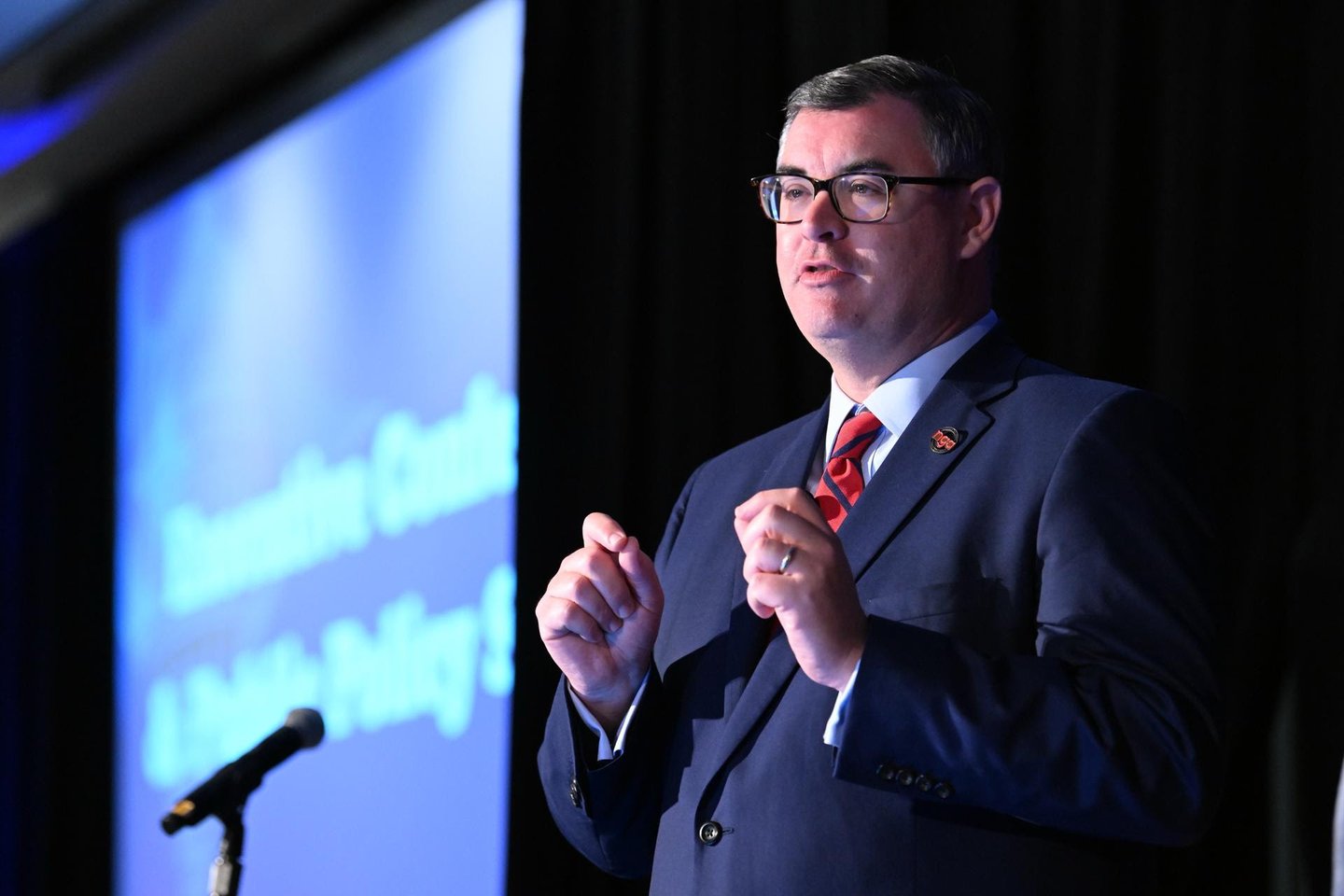NGA Welcomes Attendees to Exec Conference & Public Policy Summit
Hundreds of the independent grocery industry members converged on Washington, D.C., for the National Grocers Association’s (NGA) annual Executive Conference and Public Policy Summit, taking place Oct. 28-30 at the Fairmont Hotel.
The summit was created to help prepare attendees deal with technology, marketing, and policy issues confronting the independent grocery sector. Among NGA’s current policy priorities are enforcement and bolstering of antitrust regulations, credit card swipe fee reform, and federal nutrition programs that recognize the important role played by independent grocers in expanding food accessibility and supporting local economies.
“No matter what the outcome of the election next week, the environment in which businesses will operate will likely change in the coming months,” said Greg Ferrara, president and CEO of Washington, D.C.-based NGA. “The summit is so incredibly valuable because it’s designed to prepare independent grocers and their trading partners to handle whatever lies ahead.”
The first day of the conference began with welcome remarks from Ferrara and NGA Board Chairman Manard Lagasse, president and CEO of Baton Rouge, La.-based Associated Grocers Inc., followed by “Navigating the Future: State of the Independent Grocery Industry,” a comprehensive update on the industry landscape and outlook. Scott Moses, of New York-based Solomon Partners, moderated a panel consisting of Joe Kirby, CEO of Worcester, Mass.-based Imperial Distributors, and Amy McClellan, SVP and CCO of Grand Rapids, Mich.-based SpartanNash.
The program continued with “Unlocking Insights: Findings from the NGA-FMS Financial Benchmark Report for Independent Grocers,” during which Robert Graybill, president and CEO of Fort Lauderdale, Fla.-based FMS Solutions, analyzed key findings on profitability, labor costs and sales trends. The report revealed net profit at 1.4%, a return to pre-pandemic levels, and an EBITDA decline to 2.77%, highlighting challenges in the independent grocery sector.
Graybill’s session was followed by “Consumer Behavior Changes: Are You Ready?” with Andrew Henkel, president of retail at Chicago-based SPINS and Meagan Nelson, VP of retail and distributor Growth at SPINS.
Then came “How Will Consumers Shop for Food in 2030? The Future of Technology in Grocery,” led by Craig Rosenblum, principal of Columbus, Ohio-based Columbus Consulting. The session dealt with how technology should be viewed as an enhancement or augmentation of personal and business actions.
The last session of the day, “Washington, Lincoln, Roosevelt, Churchill: A Strategic Approach to Leading Through Crisis and Change,” featured the event’s keynote speaker, Dr. Peter Cressy, Ed.D., RADM (Ret.), director of executive leadership programs at the Mount Vernon, Va.-based George Washington Leadership Institute.
That evening, there was a fundraising event in support of the NGA Foundation.
NGA is the national trade association representing the retail and wholesale community grocers comprising the independent sector of the food distribution industry. The independent grocery sector is accountable for about 1.2% of the nation's overall economy and is responsible for generating more than $250 billion in sales, 1.1 million jobs, $39 billion in wages and $36 billion in taxes.






